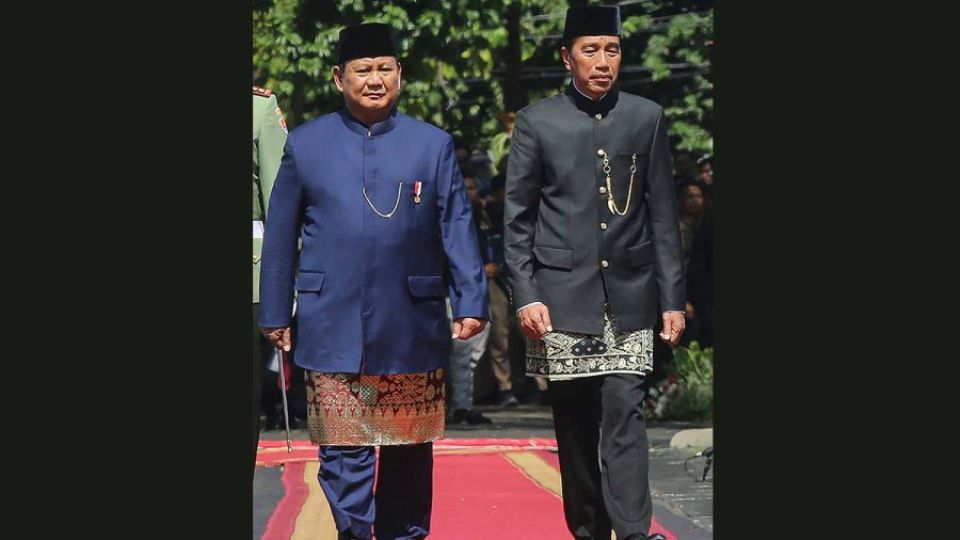February 12, 2025
JAKARTA – The decision of President Prabowo Subianto’s administration to temporarily freeze funding for the development of future capital city Nusantara in East Kalimantan has raised questions about his commitment to continuing the legacy of his predecessor, Joko “Jokowi” Widodo, and whether it will jeopardize their relationship.
Jokowi, who played a key role in Prabowo’s victory in the last presidential election, has made Nusantara a key part of his legacy, spending his final weeks working at the half-finished presidential palace and pushing out new policies to build as much as possible before his term ended in October of last year.
Prabowo has publicly expressed his commitment to completing the construction of the new capital, but the President has not shown as much interest in accelerating the project’s completion since taking office late last year, prioritizing instead his flagship free meals program aimed at reducing the country’s perceived high prevalence of stunting.
The President ordered last month sweeping budget cuts from all ministries and agencies, aiming to accumulate Rp 306 trillion (US$18.7 billion) to fund his administration’s costly priority programs, particularly the free meals for 82.9 million school children and pregnant women. The government has allocated Rp 71 trillion to run the program for the 2025 fiscal year.
Meanwhile, the new government set aside around Rp 48 trillion for Nusantara’s development until the end of Prabowo’s term in 2029, marking a decline from the Rp 75 trillion budget allocation between 2022 and 2024 in Jokowi’s administration.
Speculations about Prabowo’s possible U-turn on the capital development intensified after Public Works Minister Dody Hanggodo unveiled last week that the Nusantara project has yet to make any progress this year, noting that the Finance Ministry has frozen budgets needed to continue its construction.
The sudden resignation of a high-ranking official at the Nusantara Capital (IKN) Authority, Mohamed Ali Berawi, who serves as the green and digital transformation deputy, also has not helped quell speculations about the potential halt of the project.
The IKN Authority did not respond to questions from The Jakarta Post, but its spokesperson Troy Pantouw denied reports that the construction of the new capital city had stopped and workers were being sent back to their home regions.
With the project putting pressure on the already strained government budget, political analysts believed that Prabowo is recalculating his plan for the new capital project to make room for his own legacy programs.
“Since Prabowo took office, numerous national strategic programs and infrastructure developments initiated under Jokowi were reevaluated and discontinued,” said Adi Prayitno of Parameter Politik Indonesia, noting that Nusantara is not an exception.
Yoes Kenawas, a research fellow from Atma Jaya University, however, believed that Prabowo would not scrap the new capital project entirely from his agenda, given that the move would backfire politically and put the stability of his government at risk.
Discontinuing Nusantara’s development “would hurt Prabowo’s own reputation as he walks back on his previous commitment […] it also sends the wrong signal to investors, potentially hindering future investment in the country”.
Ditching the project entirely would also jeopardize Prabowo’s alliance with Jokowi, the father of Vice President Gibran Rakabuming Raka — who may launch his own presidential bid and run against Prabowo in the next election in 2029, Yoes continued.
Noting that Gibran is “the biggest threat to Prabowo’s reelection bid”, Yoes said Prabowo will have to continue the new capital project to keep Gibran at arm’s length to avoid early confrontation and prevent the Vice President from using any mishaps in his government as ammunition to challenge him.
He further noted that Jokowi, whose two-term presidency ended with a 75 percent approval rating, “could still pose a threat to Prabowo through public opinion”.
Similarly, political analyst Hendri Satrio from Kedai Kopi believed that the fund freeze does not necessarily indicate Prabowo’s intention to halt the project. He, however, noted that it may suggest a project delay until “the country’s economy is in a better place”.
IKN Authority chairman Basuki Hadimuljono confirmed earlier this month that there would not be a budget cut for the Nusantara development, claiming that the authority would instead receive an extra Rp 8.1 trillion for the construction of buildings for legislative and judicial institutions.
But Basuki said he would need to confirm the adjustment with the Finance Ministry, given that the additional budget was approved by Prabowo before the issuance of Presidential Instruction No. 1/2025.
Coordinating Minister for Infrastructure and Spatial Development Agus Harimurti Yudhoyono has acknowledged that food and energy self-sufficiency would be at the forefront in the President’s agenda, but he reassured that “this does not mean infrastructure development is secondary.”
Support to postpone the construction of Nusantara, however, has emerged from members of Prabowo’s governing coalition, including one of the parties that had supported Jokowi throughout his two-term presidency, the National Awakening Party (PKB), which urged Prabowo to not let the new capital city project hinder other public welfare programs.
“If the country is experiencing budget difficulties or has other public welfare programs that are more urgent, there is nothing wrong with postponing the new capital project. Isn’t the main goal of national development to improve the welfare of the people?,” said PKB lawmaker Indrajaya.


